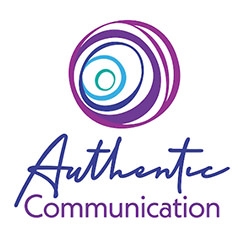

Search Results: communication
-
Whenever we make mistakes, we're often beating ourself up in a way that breeds guilt, fear and/or shame. Nonviolent Communication offers a model based in self-empathy that lets you reflect, process and move forward without the guilt, fear and shame.
-
Have you been struggling with the difficulties that can arise from working at home? If you're used to working from an office, a space that is designed for work, it can be a shock working from a space that is usually associated with other kinds of activities. In this Life Hack, we look at ways that NVC can help you deal with potential conflicts that arise.
-
How can Nonviolent Communication practices support us when we're feeling depressed? Taking a look at some characteristics of depression and how they're linked to unmet needs, we offer some steps to take that help you reconnect with life and others.
-
If withdrawal is your stress pattern, you likely want to belong and yet have habits of expression that others find uninviting. Instead, soften, relax, and open your posture and energy. Find something that will bring you to smile. Engage with others -- make eye contact, smile, walk towards others, say hello, and sit in an open posture. Let others know that you're a bit overwhelmed, but want to connect and are glad to be here.
-
Jim and Jori share their work integrating Martin Seligman's work on Positive Psychology with Nonviolent Communication in a system they call REMAP, focusing on relationships, engagement, meaning, accomplishment and positivity.
-
Relationship repair means building connection and care after disconnect and unmet needs. It requires intention to connect and take responsibility for your behavior by naming what didn’t work, offering empathy, and making a plan to do something differently next time. When you have enough empathy to find care and curiosity for them, reflect the other person's observation, thoughts, feelings, needs and requests. Focus on this more than on details of the event.
-
In Nonviolent Communication "power over" refers to the use of power to dominate or control others. It is a form of violence or force, whether physical, emotional, psychological or otherwise. This learning tool has six lists, each containing different types of power over strategies: physical, sexual, intimidation, economic, emotional, isolation.
-
Join Mary Mackenzie, Certified NVC trainer, as she offers ways to incorporate NVC empathy guesses, feelings and needs into everyday conversations. This approach is geared towards adding deeper connection to the natural flow of conversations. The technique has become known as Street Giraffe.
-
Taking a look at how our unconscious biases often go unexamined and unchallenged.
-
While we can’t control other’s behavior, we can choose how we show up. With forethought and care, we can approach interactions with more clarity, love, and skill. Read on for practices that include: Choose wise attention, ask better questions, practice deep listening, structure the conversation, know your limits, speak your truth, share your personal stories, be present and recall permanence.
-
When you say yes, check if you are saying it out of submission. Similarly, when you say no, are you saying it genuinely or out of rebellion? Marshall Rosenberg calls this a loss or erosion of goodwill which can destroy or undermine relationships. In this video, Rachelle Lamb shares how submission and rebellion in communication can diminish your power.
-
Join certified CNVC trainers Jim and Jori Manske to explore the relationship between gratitude and Nonviolent Communication as a way to learn and practice NVC.
-
Shifting to a needs-based perspective is one of the most powerful—and challenging—aspects of integrating Nonviolent Communication (NVC) into daily life. In this short video, Mary Mackenzie offers three simple, practical tips to help you cultivate needs consciousness and transform how you experience your world and relationships.
-
Are you looking to deepen your connection to Nonviolent Communication (NVC) and build powerful empathy skills? In this short video, Mary Mackenzie shares how finding an empathy buddy transformed her life and practice.
-
In this moving reflection, Rachelle Lamb honors Marshall Rosenberg’s true vision for Nonviolent Communication—not just as a tool for personal transformation, but as a catalyst for deep social change. She reminds us that inner work alone is not enough in a world facing ecological collapse, rising suicide rates, and widespread displacement.
-
Leading a Nonviolent Communication workshop is a good way to learn and practice NVC skills. Here are Shantigrabha and Gesine's seven top tips for facilitators.
-
Explore the core teachings and principles of Nonviolent Communication (NVC) to foster collaboration, mutual support, and to connect across differences. NVC emphasizes connecting through universal needs, honest expression, and compassionate listening—creating space for understanding, and meaningful human connection.
-
Are you looking to deepen your connection to Nonviolent Communication (NVC) and build powerful empathy skills? In this short video, Mary Mackenzie shares how finding an empathy buddy transformed her life and practice.
-
Trainer Tip: We may communicate indirectly when we worry about hurting someone’s feelings. Instead, commit to being direct with compassion, love, honesty, and respect to both yourself and others. They may not enjoy what you say, but at least they'll know where you're coming from. Being true to yourself, you can be true to your relationships. And it can build trust.
-
Trainer Tip: Do you ever think you’re taking life just a little too seriously? Many of us work hard trying to improve our outlook, our ability to communicate, and our lives. Sometimes we work so hard, we forget to enjoy life. So let’s make a pact to enjoy our day.

Quick Links
Subscription Preferences
Stay In Touch!
Looking for ways to keep up with NVC Academy news, get special offers, free resources, or words of inspiration? Here are five ways to stay engaged:


















